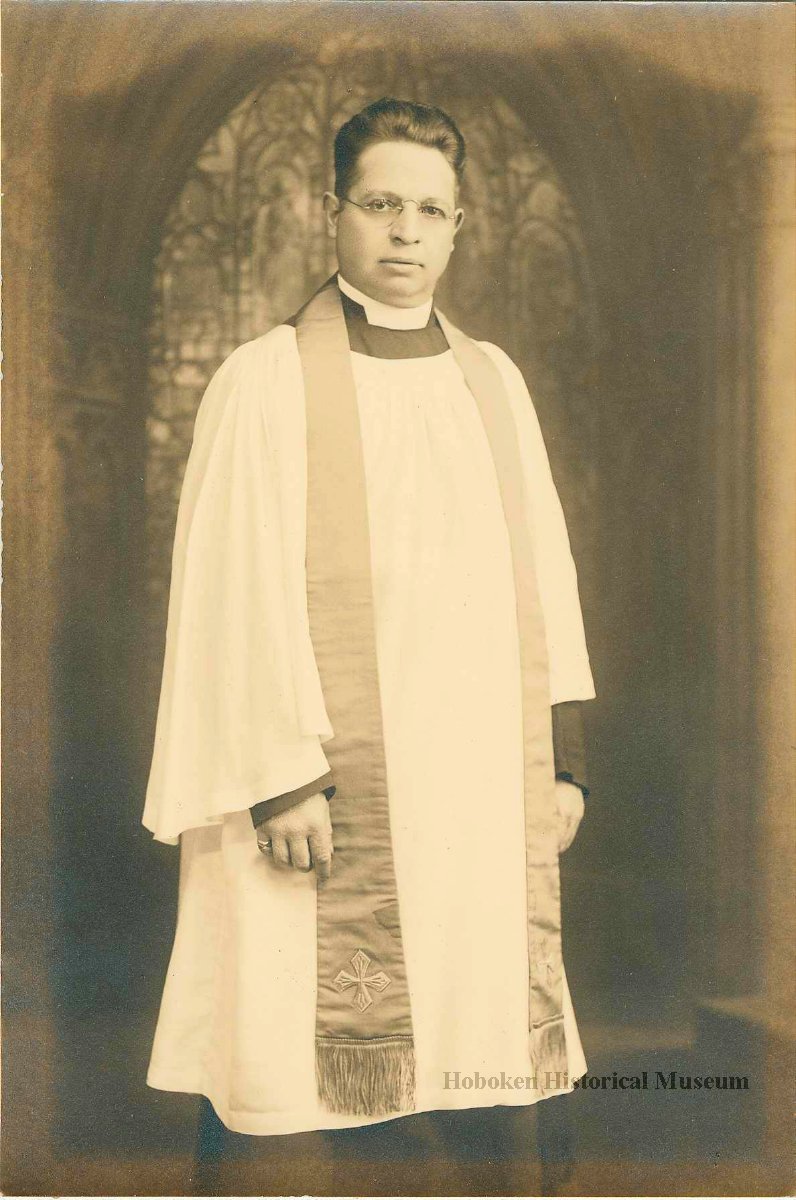Holy Communion: The Trysting Place
The Trysting Place
“When we are bereft of dear ones, it is a tremendous shock. For a time we are stunned. Not everyone can feel at once their continuing companionship. We should not for that reason despair. An adjustment must take place in our lives, reaching deep into our habits, emotions and thoughts. Some souls may make this adjustment quickly. For most of us it comes slowly and hard; many an hour is filled with loneliness and agonizing doubt. By ourselves we can never make this adjustment. We must come to a sense of the continuing presence of our loved ones, and we can do this if we realize the presence of our Living Lord.
Rev. Berthold Von Schenk
As we seek and find our Risen Lord we shall find our dear departed. They are with Him, and we find the reality of their continued life through Him. The saints are a part of the Church. We worship with them. They worship the Risen Christ face to face, while we worship the same Risen Christ under the veil of bread and wine at the Altar. At the Communion we are linked with Heaven, with the Communion of Saints, with our loved ones. Here at the Altar, focused to a point, we find our communion with the dead; for the Altar is the closest meeting place between us and our Lord. That place must be the place of closest meeting with our dead who are in His keeping. The Altar is the trysting place where we meet our beloved Lord. It must, therefore, also be the trysting place where we meet our loved ones, for they are with the Lord. How pathetic it is to see men and women going out to the cemetery, kneeling at the mound, placing little sprays of flowers and wiping their tears from their eyes, and knowing nothing else. How hopeless they look. Oh, that we could take them by the hand, away from the grave, out through the cemetery gate, in through the door of the church, and up the nave to the very Altar itself, and there put them in touch, not with the dead body of their loved one, but with the living soul who is with Christ at the Altar. Our human nature needs more than the assurance that someday and in some way we shall again meet our loved ones “in heaven.” That is all gloriously true. But how does that help us now? When we, then, view death in the light of the Communion of Saints and Holy Communion, there is no helpless bereavement. My loved one has just left me and has gone on a long journey. But I am in touch with her. I know that there is a place where we can meet. It is at the Altar. How it thrills me when I hear the words of the Liturgy, “Therefore with angels and archangels and all the company of Heaven,” for I know that she is there with that company of Heaven, the Communion of Saints, with the Lord. The nearer I come to my Lord in Holy Communion, the nearer I come to the saints, to my own loved ones. I am a member of the Body of Christ, I am a living cell in that spiritual organism, partaking of the life of the other cells, and sharing in the Body of Christ Himself. There is nothing fanciful or unreal about this. Indeed, it is the most real thing in my life. Of course, I miss my loved one. I should miss if she took a long holiday trip. But now, since she is what some people call dead, she is closer to me than ever. Of course, I miss her physical presence bitterly. I miss her voice and the sound of approaching footsteps. But I have not lost her. And when my sense of loss becomes too great, I can always go to our meeting place at the Attar where I receive the Body and Blood of my Lord that preserves my body and soul just as it has preserved her unto everlasting life. Do learn to love the Altar as the meeting place with your beloved who have passed within the veil. Here again the Sacrament is the heart of our religion. The Blessed Sacrament links us not merely to Bethlehem and Calvary, but to the whole world beyond the grave as well, for at the Altar the infinite is shrined in the finite; Heaven stoops down to earth; and the seen and the unseen meet.”
Berthold Von Schenk (Lutheran theologian), The Presence: An Approach to the Holy Communion (1945)

